Basic Tutoring Activities
Tutoring represents an educational concept that reinforces and supports educational processes. This concept, structured and carried out within the Turkish-German University, aims to create a learning culture by supporting both the individual development of students and the acquisition of social skills in the collaborative learning process.
Tutoring activities carried out at the Turkish-German University have three basic scopes: foreign language support (communication), academic field support, and orientation. Tutoring activities, which include academic support, are carried out by the Tutor with the guidance and support of the academic Tutor responsible for activities such as course repetitions, course exercises and practices, supplementary lessons in processes such as peer interaction and consultancy, guidance, advice, and planning. These interactions can be achieved through specific Tutor-student pairings (one-to-one Tutoring for a certain number of students) or through Tutor and various student groups.
Communication channels
In tutoring processes, communication platforms and channels are created through digital communication tools so that all stakeholders can stay in touch synchronously and asynchronously, monitor, report, and organize the process instantly. Among the Google Workspace digital tools that are currently used within the Turkish-German University and whose ease of use has been accepted by stakeholders, are Google Classroom, Google Chat and other Google Workspace digital tools (Google Meet, Google Drive, Google Forms, etc.) are used in Tutoring processes as needed.
Click here to get detailed information about the communication channels used in the Tutoring Program.
Tutor Trainings
Tutors who take part in peer-to-peer learning processes with the Tutoring Program represent undergraduate and graduate students who continue their formal education at the Turkish-German University. Therefore, it is of primary importance to compulsorily train Tutor students who will support their peers within the scope of the program. These trainings primarily include basic subjects focused on communication and didactic skills, and then vocational (in-field) training planned and structured specifically for each academic unit.
While skill-oriented training in the process is provided by the Distance Education Application and Research Center, in-field training is expected to be given specifically to academic units. The coordination of relevant training programs is followed within the Center, and academic units notify the Center about the plans of in-field training to be given.
Click for detailed information about Tutoring Training and Training Contents.
Tutoring Groups (Student Groups Accompanied by a Tutor)
The concept of Tutoring Groups, based on learning and practice communities, represents a more flexible structure in meeting the varying expectations and needs in the learning processes. It refers to supporting students with collective activities such as lessons, exercises or seminars, rather than matching them one-on-one with a Tutor. It is envisaged and recommended that Tutoring Groups formed in this context consist of 3-25 students, depending on the support provided, need, or type of activity. However, numbers may vary depending on the type of activities. The basic principle in such Tutoring activities is to support comprehensive and versatile peer-to-peer learning. A Tutor can support many students within the scope of group studies. Students can also benefit from many Tutors this way.
Tutor-Student Pairings
Tutor-student pairings are when Tutor students are assigned to specific topics on which students request support/consultancy, and Tutors interact one-on-one with one or more students receiving Tutor support. In this context, individual counseling and guidance is available. The limits of Tutor pairing activities are determined by certain criteria, and each Tutor is responsible for a certain number of students receiving support throughout the process. In this regard, one-on-one matches or small group matches can be made in line with the criteria and initiative of the academic units. The criteria observed in tutor-student pairings are determined by the students requesting support, and the relevant criteria can be diversified to meet the needs and expectations of the students requesting support.
For the Tutoring Program at the Turkish-German University, the working hours of Tutors are a maximum of 15 hours per week and a maximum of 30 hours per month.

